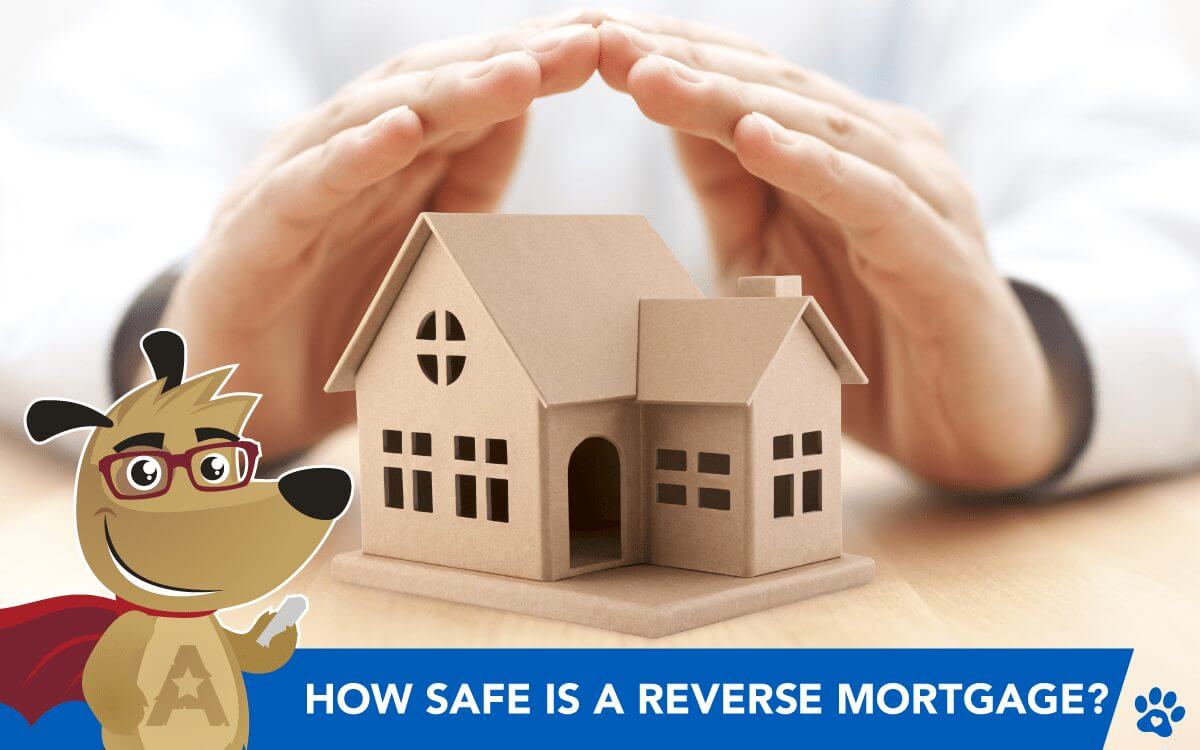
Discover the Safety of Reverse Mortgages
How Reverse Mortgages Have Become Safer: Essential Protections Explained
 |
Michael G. Branson, CEO of All Reverse Mortgage, Inc., and moderator of ARLO™, has 45 years of experience in mortgage banking, with the past 20 years devoted exclusively to reverse mortgages. A Forbes Real Estate Council member, he developed the industry's first fixed-rate jumbo reverse mortgage and has been featured in Forbes, Kiplinger, the LA Times, and Yahoo Finance. (License: NMLS# 14040) |
 |
Cliff Auerswald, President of All Reverse Mortgage, Inc., and co-creator of ARLO™ — the industry's first real-time reverse mortgage pricing engine — has 27 years of experience in mortgage banking, with 20+ years focused exclusively on reverse mortgages. A recognized expert in reverse mortgage technology and consumer education, he has been featured in Kiplinger, Yahoo Finance, Realtor.com, and HousingWire. (License: NMLS# 14041) |
For years, reverse mortgages carried a stigma. High fees, the fear of losing your home, and tales of predatory lenders made many older homeowners wary. Yet, these loans have evolved significantly. Thanks to robust regulations, federal insurance, and greater transparency, reverse mortgages are now safer than ever, offering a secure way for retirees to tap into their home equity.
What’s changed? New safeguards protect borrowers from unfair practices, ensure clarity, and provide flexible financial options. Let’s dive into these essential protections and see why reverse mortgages might deserve a second look for your retirement.

Safeguard #1: Federal Guarantee
Safeguard #2: Non-Recourse Feature
Safeguard #3: Required Counseling
Before applying for an HECM, borrowers must complete counseling with a HUD-approved third-party agency. This session ensures you fully understand the loan’s mechanics, costs, and implications for your situation. Counselors provide objective advice, answer your questions, and issue a certificate required to proceed. This step empowers you to make an informed decision without pressure from lenders.
Find a HUD-approved counselor here.
Safeguard #4: Cross-Selling Ban
Under the Housing and Economic Recovery Act of 2008, reverse mortgage lenders cannot force you to buy additional financial products (like annuities or insurance) as a condition of the loan. They’re also barred from associating with or selling such products themselves. While you’re free to use your proceeds however you choose, this rule shields you from predatory upsells, keeping the focus on your needs.
Key Safeguards of Reverse Mortgages
| Safeguard | How It Protects You | Key Benefit |
|---|---|---|
| Federal Guarantee | FHA insurance ensures loan proceeds if lender fails | Financial stability |
| Non-Recourse Feature | Limits repayment to home’s value at sale | No debt burden for you or heirs |
| Required Counseling | Third-party education on loan terms | Informed, pressure-free decisions |
| Cross-Selling Ban | Prevents forced purchase of other products | Protection from predatory tactics |
Are You a Candidate?
Top FAQs
Is a reverse mortgage legitimate?
What is the catch with a reverse mortgage?
Can you lose your house with a reverse mortgage?
Does a reverse mortgage have to be paid back?
Are Reverse Mortgages Safe?
Key Takeaways
Reverse mortgages have shed their risky reputation. Federal oversight, non-recourse terms, mandatory counseling, and anti-predatory rules ensure borrowers are protected and informed. These changes make reverse mortgages a reliable tool for unlocking home equity—safely and securely.
ARLO recommends these helpful resources:

 Michael G. Branson
Michael G. Branson Cliff Auerswald
Cliff Auerswald

December 22nd, 2022
December 22nd, 2022
April 4th, 2022
April 15th, 2022
October 17th, 2021
October 27th, 2021